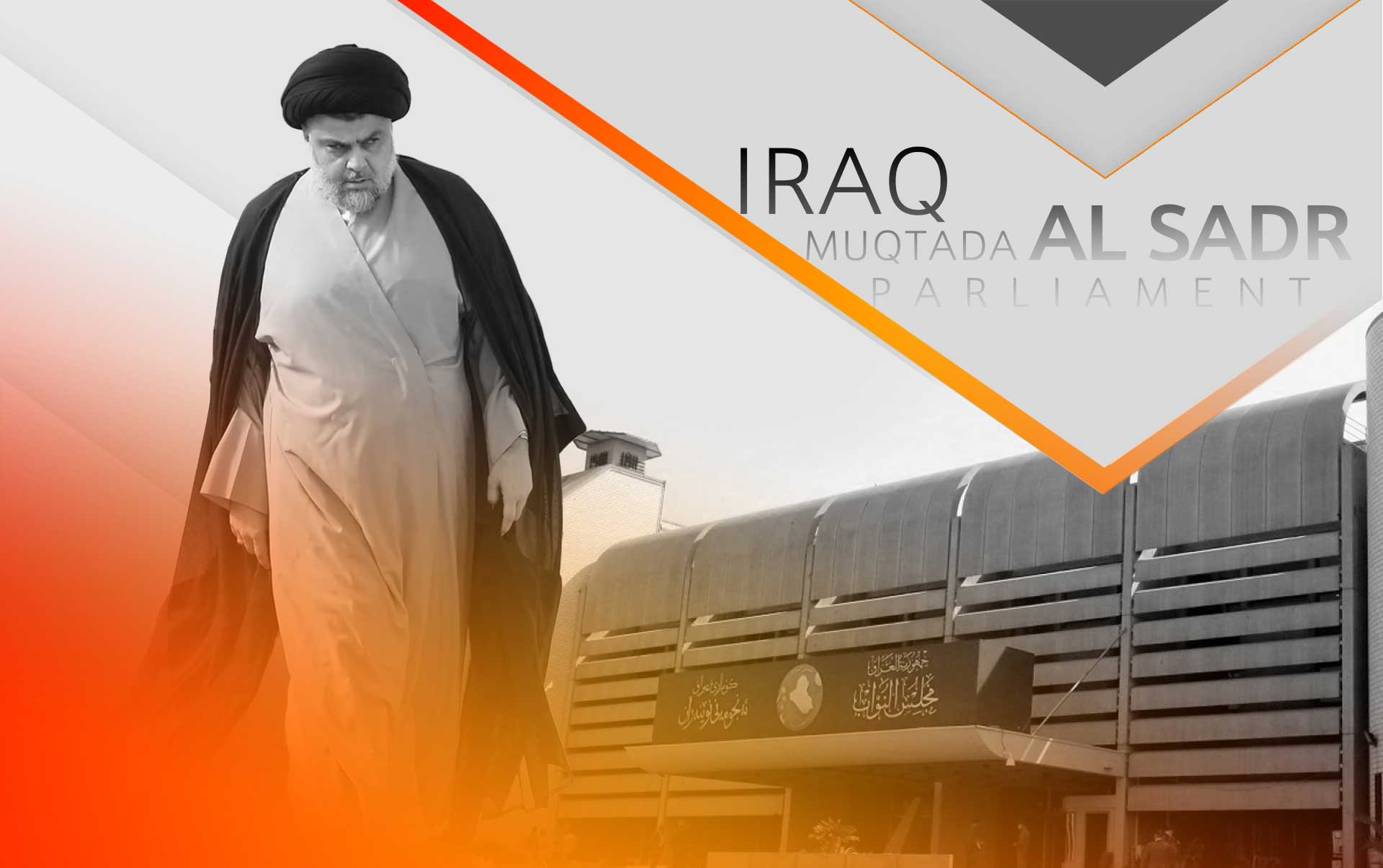After eight months of conflict and political deadlock, Muqtada Al-Sadr extricated himself from bearing the responsibility of political and governmental crisis. Sadr implemented his threat of withdrawing from the Parliament. Some reasons for Sadr’s withdrawal are personal, and some are related to his vision of confronting his Shiite rivals. However, this withdrawal created a significant imbalance in the political process, and since June 12th evening, the fate of Iraq has become unknown.
The withdrawal of the 73-seat Sadrist-winning MPs represents about 885,000 Shiite ideologies withdrawal from the political process. At the same time, they will be replaced with independents and representatives from blocs that were called “losers”. This replacement will create a breach of the Parliament’s legitimacy. Especially at the Shiite level and “political Shiites” who are in danger of losing the majority in Parliament, which has never happened in Parliament after 2005.
With his withdrawal, Sadr liberated his two allies, the Kurdistan Democratic Party and Sovereignty Coalition, to move on to the next step of forming the government. However, the two parties now have about 98 seats in Parliament. In contrast, the Coordination Framework Forces have about 120 seats, and by their alliance with Azm (Sunnis) and the Patriotic Union of Kurdistan, this number increases to 178 MPs. There are also about 50 independents or oppositions and representatives of the other components, which means that balance is missed in the Parliament, not only in terms of quantity but also in terms of quality, too Because the tripartite alliance sees itself as a representative of “a moderate Iraq that is open to its surroundings,” unlike the “armed groups” represented by coordination framework that leads their way to Iran. The main question is if these “groups” were able to form the next government? And if Maliki would be able, in the absence of Al-Sadr and the silent Sistani, to regain his political role or form the new government, what is the future of the political, diplomatic, and economic relations between Iraq and the Arab countries, GCC, Europe, and the US?
Sadr could have personal, emotional, moral, or political reasons for withdrawing. However, by his withdrawal, Sadr aims to be stronger than before, and this move is not to concede or accept failure in front of the Coordination Framework. While both the Sovereign Coalition and the KDP said that they “respect Sadr’s decision”, hinting that they will not withdraw. However, both of them now are in a new political equation. Halbousi’s position is in danger because the new majority of Parliament chooses the head of Parliament. As for the KDP, it will not be easy for the Coordination Framework to make the KDP satisfied quickly. Especially after eight months of accusations of communicating with Israel, drone attacks and bombing. Other than this, the decision of the Federal Court regarding the oil of the Kurdistan Region makes it even harder to reach an agreement. These outputs indicate that filling Sadr’s place and creating a new political environment will take time, contrary to what Halbousi said at a press conference in Amman, which was an attempt to alleviate the severity of the situation.
The tools for Sadr’s return are straightforward: the formation of widespread opposition and a return to the squares and demonstrations. Especially as we are getting into July, there is a high probability that Sadr will extend his arm to any unsatisfied movement or the remnants of the scattered October, who now have representatives in Parliament preoccupied with fighting for power and exchanging accusations. They aspire to form a consensus government.
Many of the solutions to resolve Sadr’s withdrawal refer to the reelection. However, due to the possibility of repeating the exact result or increasing boycotts, that is not an easy option. This opened the door to armed tensions and mass protests similar to the October demonstrations, which would put post-2003 republican legitimacy under threat. Then, the possibility of change and a sudden and urgent solution would increase.



